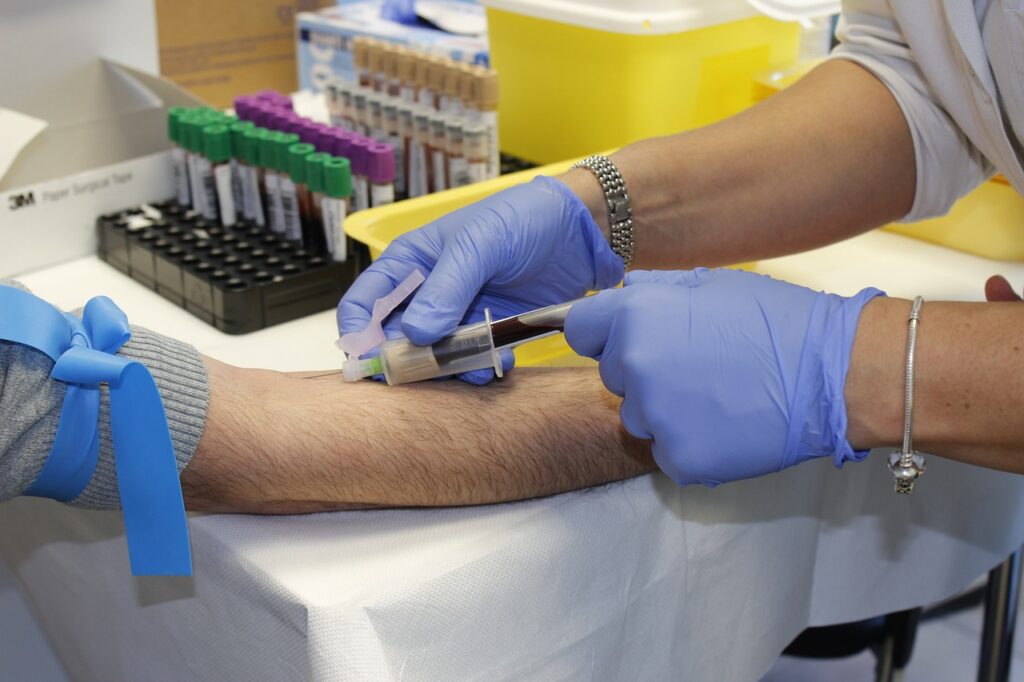Imagine a world where illness is kept at bay, where the spread of diseases is thwarted before they even begin. In this article, we explore the powerful concept of preventing illness through health measures. From basic hygiene practices to vaccination campaigns, these measures have the potential to save countless lives and improve the well-being of communities around the globe. Join us as we delve into the fascinating world of preventive health measures and discover the simple yet transformative actions we can take to safeguard our health.
Preventive Health Measures
Preventive health measures refer to a set of practices that you can incorporate into your daily life to prevent the onset of diseases and maintain your overall well-being. By proactively taking care of your health, you can significantly reduce the risk of falling ill and enjoy a higher quality of life. This article will discuss several essential preventive health measures that you can implement in your life to safeguard your health and well-being.
Promoting Vaccination
One of the most effective preventive health measures is getting vaccinated. Vaccinations have played a crucial role in minimizing the impact of infectious diseases for decades. By immunizing yourself against viruses and bacteria, you not only protect yourself but also contribute to the overall health of your community. Vaccines are designed to stimulate your immune system and create a defense mechanism against specific diseases, significantly reducing your risk of infection. It is important to stay up to date with recommended vaccinations throughout your life, as new vaccines become available to protect against emerging threats.
Maintaining Good Hygiene Practices
Practicing good hygiene is a fundamental preventive health measure that everyone should incorporate into their daily routine. Proper hand hygiene, such as washing your hands with soap and water for at least 20 seconds, can significantly reduce the transmission of germs. Additionally, covering your mouth and nose with a tissue or your elbow when coughing or sneezing can prevent the spread of respiratory droplets that may contain harmful bacteria or viruses. Regularly cleaning and disinfecting commonly touched surfaces in your home and workplace also helps minimize the risk of germ transmission.

Ensuring a Balanced Diet
Eating a balanced and nutritious diet is vital for maintaining good overall health and preventing disease. A balanced diet includes a variety of fruits, vegetables, whole grains, lean proteins, and healthy fats. These foods provide essential nutrients, vitamins, and minerals that support your immune system and help your body function optimally. Consuming a diet that is rich in fruits and vegetables can also reduce the risk of chronic diseases such as heart disease, diabetes, and certain types of cancer. It is important to limit the intake of processed foods, sugary snacks, and beverages high in added sugars, as they can contribute to weight gain and increase the risk of chronic diseases.
Regular Exercise and Physical Activity
Engaging in regular exercise and physical activity is another important preventive health measure. Regular exercise has numerous health benefits, including strengthening your immune system, improving cardiovascular health, maintaining a healthy weight, and reducing the risk of chronic diseases such as diabetes and certain types of cancer. Aim for at least 150 minutes of moderate-intensity aerobic activity or 75 minutes of vigorous-intensity aerobic activity every week, along with muscle-strengthening activities at least two days per week. Find activities that you enjoy, such as walking, cycling, swimming, or dancing, and make them a regular part of your routine.

Getting Adequate Sleep
Quality sleep is essential for your overall health and well-being. During sleep, your body repairs and rejuvenates itself, and your immune system strengthens. Lack of sleep or poor sleep quality can weaken your immune system, making you more susceptible to infections and chronic diseases. Aim for 7 to 9 hours of quality sleep every night. Establish a bedtime routine, create a sleep-friendly environment, and limit the use of electronic devices before bed to improve your sleep quality.
Managing Stress Levels
High levels of stress can have a detrimental impact on your health, weakening your immune system and increasing the risk of various diseases. Therefore, an important preventive health measure is effectively managing stress. Find healthy coping mechanisms that work for you, such as practicing mindfulness meditation, deep breathing exercises, engaging in hobbies, or spending time with loved ones. Prioritize self-care and ensure you have a good work-life balance. If you find it challenging to manage stress on your own, reach out to a mental health professional who can provide guidance and support.

Avoiding Tobacco and Alcohol
Avoiding tobacco and excessive alcohol consumption is crucial for preventing a wide range of health problems. Smoking tobacco increases the risk of various cancers, respiratory diseases, and cardiovascular diseases. Quitting smoking or avoiding smoking altogether can significantly improve your health and reduce the risk of these diseases. Excessive alcohol consumption can lead to liver disease, certain cancers, and mental health disorders. Drink alcohol in moderation, if at all, and seek help if you’re struggling with alcohol addiction.
Protecting from Environmental Hazards
Environmental hazards, such as air and water pollution, can negatively impact your health. Take measures to protect yourself from these hazards by staying informed about the quality of your environment. Use air purifiers in your home, minimize exposure to pollutants, and ensure your drinking water is safe. If you live in an area with high pollution levels, consider wearing a mask when necessary and reducing outdoor activities during peak pollution times.

Educating on Illness Prevention
Education plays a vital role in illness prevention. Stay informed about the latest developments in public health and educate yourself on how to prevent specific diseases. Understand the signs and symptoms of common ailments, know when to seek medical attention, and follow public health guidelines and recommendations. Share your knowledge with others to promote a collective effort in preventing the spread of diseases.
Regular Health Check-ups
Finally, regular health check-ups are essential for preventive healthcare. Schedule regular appointments with your healthcare provider to monitor your overall health and detect any potential issues early on. Screenings, vaccinations, and routine tests can help identify conditions or risk factors that may need attention. By seeking regular medical care, you can actively manage your health and take necessary steps to prevent the development of more serious health problems.
In conclusion, preventive health measures are crucial for protecting your well-being and reducing the risk of illness. By promoting vaccination, maintaining good hygiene practices, ensuring a balanced diet, engaging in regular exercise, getting adequate sleep, managing stress levels, avoiding tobacco and alcohol, protecting yourself from environmental hazards, educating yourself and others, and scheduling regular health check-ups, you can take proactive steps towards preventing diseases and living a healthier life. Start implementing these preventive health measures today and prioritize your well-being for a happier and healthier future.



